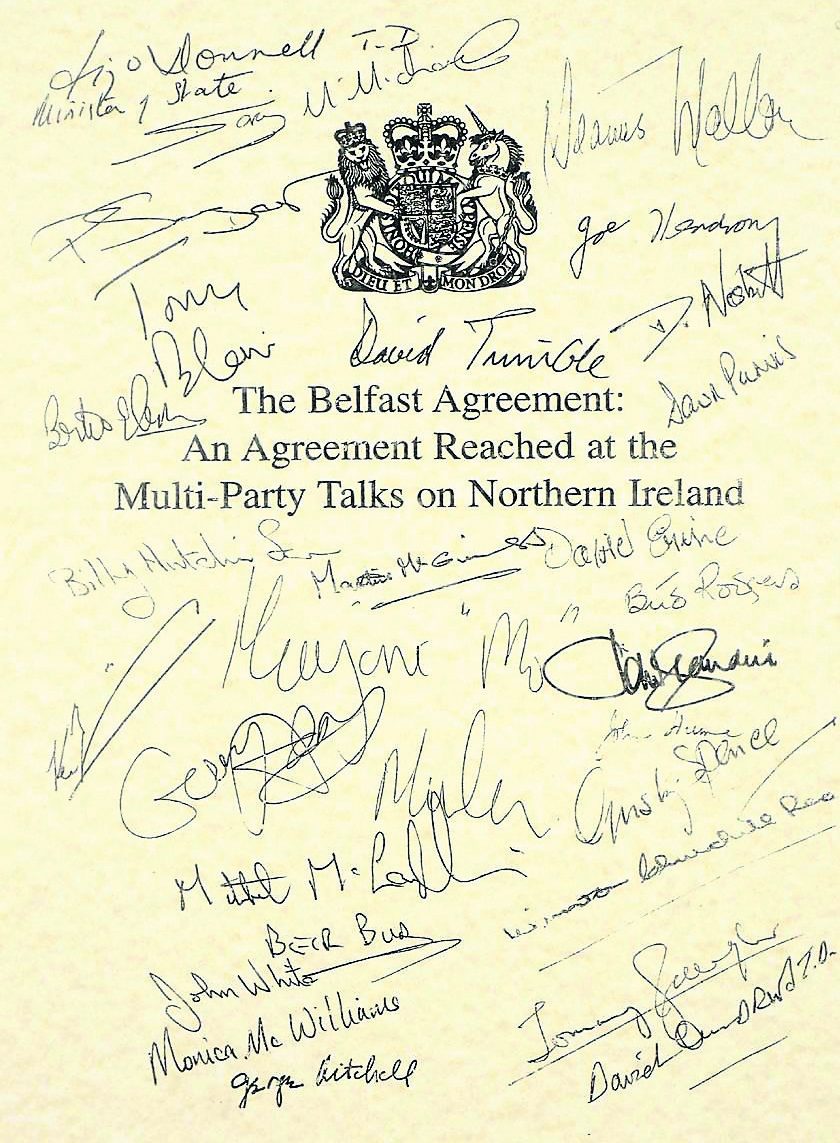ONE of the key players in the signing of the Good Friday Agreement has called for it to be reformed and adapted to our current political landscape, and has called on today’s elected representatives to show the same strength of leadership seen 25 years ago.
Belleek man Tommy Gallagher was right at the heart of the GFA talks at Castle Buildings in the lead up to that historic moment on April 10th 1998, having been appointed a delegate at peace negotiations by John Hume almost a decade earlier.
Speaking to the Herald on its 25th anniversary, the former SDLP MLA, pictured right, said he still passionately believes in the Agreement, but feels it should not be seen as set in stone, but rather as an ever-evolving process that grows with society.
“I’m still a very strong believer in the Agreement itself. It is the bedrock for the future for people in this country,” said Mr Gallagher.
He added, however, that at the time “everyone knew that society doesn’t remain static.”
“Politics has to respond to that, and therefore nobody, myself included, expected that the Agreement should be set in concrete but rather a document that could be reformed as required,” he said.
“I hope now that it is the 25th anniversary that there will be reforms considered.”
Mr Gallagher noted aspects of the Agreement had already been altered by the subsequent St Andrew’s Agreement, which had “unintended consequences” that had lead to the current Stormont impasse.
“Some people thought it improved the Agreement, but clearly, in some aspects, it has had the opposite affect now,” he said, pointing to changes in the selection of First and Deputy First Minister.
“Under the original agreement the First and Deputy First Minister were elected by a vote in the Assembly, and that required support from both of the two main traditions. St Andrew’s changed that, and the First and Deputy First Minster were to be nominated by the two largest parties.
“That has had an affect that it has just weakened support for middle ground parties, and for the more extreme parties their support has strengthened as it registers as some kind of a contest between the largest unionist and the largest nationalist parties for the top job.”
He added, “[It] also lead to this veto we hear so much about, where one of the largest parties can bring down the Assembly if they so decide,” he said, calling for that veto to be “looked at” again.”
More generally, Mr Gallagher noted one of the key to the successes of the Agreement was the strong leadership shown by those involved, and called for a return to that ethos.
“I think it would be helpful if some of the people involved at the present time showed strong leadership,” he said.
He also called for a return to the focus on the important involvement of civic society in the ongoing peace process, which he said had set out in the original Agreement, and was “essential in any modern democracy.”
Finally, recalling the involvement of US envoy George Mitchell in bringing about the Agreement – who he said “brought great authority and calmness and engagement” to the talks and “had all the right qualities for the responsibility he had at that time” – Mr Gallagher said he believed the US still had a part to play in wielding its influence in the current situation.
“I have no doubt it will be positive when Joe Biden gets here as well, and Joseph Kennedy looks like he will be positive and helpful as well, and it will be good for everybody,” he said.









